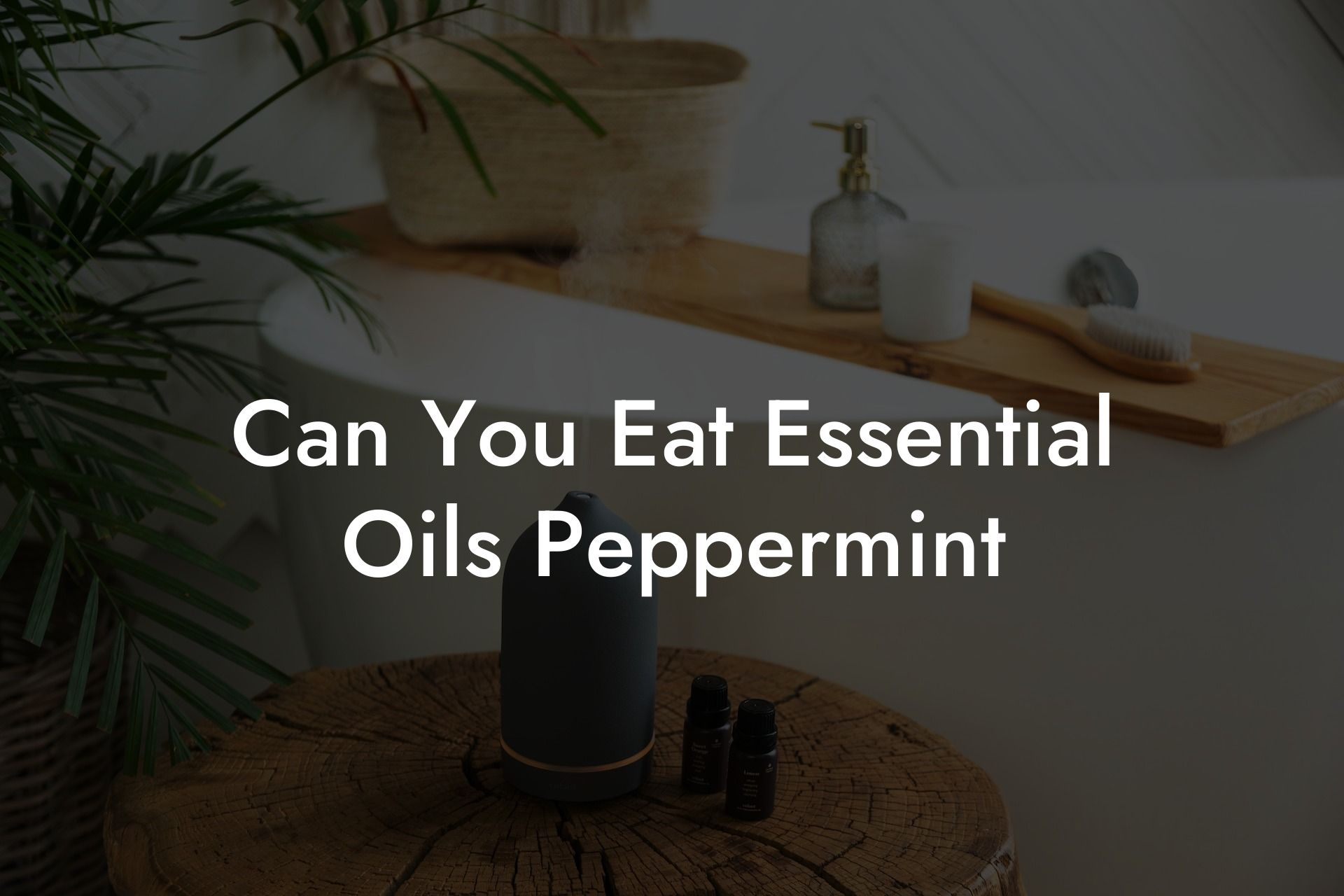Have you ever found yourself wondering if it’s safe to consume essential oils, specifically peppermint oil? You’re not alone! In this article, we’ll dive deep into the world of essential oils and discuss the safety and benefits of ingesting peppermint essential oil. We’ll also be sharing a realistic example of a simple recipe using peppermint oil that you can try at home.
Table of Contents
What are Essential Oils?
Essential oils are highly concentrated, volatile plant extracts obtained through various methods, such as steam distillation, cold pressing, and solvent extraction. These oils capture the essence and aroma of the plant, which is why they’re frequently used in aromatherapy and natural products like soaps and lotions.
Is Peppermint Essential Oil Safe to Ingest?
Peppermint essential oil, well-known for its calming and invigorating minty aroma, is derived from the peppermint plant (Mentha x piperita). The oil is popular for its myriad of potential health benefits; it has been used to combat nausea, relieve headaches, and alleviate respiratory congestion.
As with many essential oils, opinions regarding the ingestion of peppermint oil often vary, and it’s critical to gather accurate information before proceeding. While certain essential oils are considered safe to consume in small, diluted amounts under expert supervision, others can be toxic or cause adverse reactions. It’s important to note that not all peppermint essential oils are the same; some may be mixed with additives or consist of synthetic fragrances, making them unsafe to consume.
Ingesting food-grade peppermint oil, specifically labeled as safe for consumption, is generally considered acceptable. However, this is only in small, diluted amounts and should not become a regular practice. Consult with a licensed practitioner or aromatherapist before ingesting any essential oils to ensure you’re using a product that is safe and suitable for your specific needs.
Benefits of Ingesting Peppermint Oil
When consumed appropriately, peppermint oil may offer several health benefits, some of which include:
- Digestive aid: Peppermint oil is commonly used to help soothe symptoms of indigestion, bloating, gas, and irritable bowel syndrome (IBS).
- Headache relief: Research suggests that ingesting peppermint oil may help relieve tension headaches when used in conjunction with other treatments.
- Fresh breath: Peppermint essential oil is a natural breath freshener, with its pleasant minty scent and antibacterial properties that help combat bad breath.
Can You Eat Essential Oils Peppermint Example:
A simple, realistic example of using peppermint essential oil in your daily routine is to create a peppermint-infused water beverage. Here’s how:
Ingredients:
– 8 ounces of water
– 1 drop food-grade peppermint essential oil (ensure that it’s safe for consumption)
– Optional: a slice of lemon or cucumber for added flavor
Instructions:
1. Pour water into a glass.
2. Add the drop of peppermint essential oil and mix well.
3. Optionally, add a slice of lemon or cucumber for added flavor.
4. Enjoy your refreshing and invigorating peppermint-infused water!
We hope this article helped address your concerns about ingesting peppermint essential oil and provided valuable insights into the potential benefits and precautions to consider. If you enjoyed this article and found it helpful, we encourage you to share it with friends and family, explore other essential oil guides on Oshu Oils, and discover our expertly crafted range of essential oils to enhance your wellbeing. Remember, always consult with a licensed professional before incorporating essential oils into your daily regimen, and choose products that are safe, pure, and suitable for your specific needs.





















